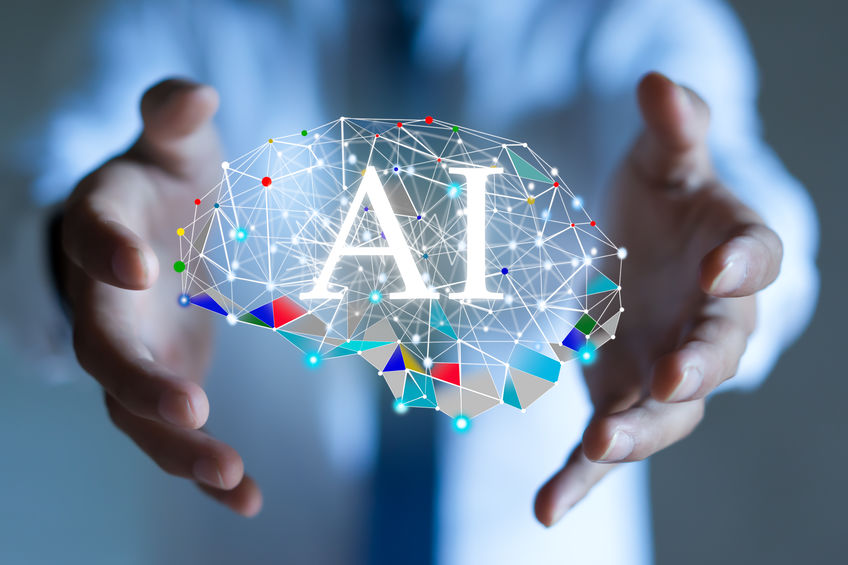As I discuss at length in my recent book “The Weaponization of AI and the Internet,” our human society is experiencing the very earliest beginnings of an expansively disruptive information revolution.
Artificial Intelligence (AI)-enabled algorithms and automated machines are transforming our society, our daily lives, and potentially even our views of what it means to be “human” more rapidly and completely than we can possibly contemplate. Critical uncertainties remain regarding whether — through our inventions — we are inevitably outsmarting ourselves.
Optimists among us believe that AI-assisted human intelligence will ultimately provide us with near-magical tools for alleviating suffering and realizing human potential.
Some holding this vision foresee that super-intelligent AI systems will enable us to comprehend presently unknowable vast mysteries of the Universe. To solve humanity’s most vexing questions such as eradication of diseases, natural resource depletion and world hunger.
Others warn that when humans create self-improving AI programs whose intellect dwarfs our own, we will lose the ability to understand or control them.
One of the best-known members of this dystopian camp, Elon Musk, has called super-intelligent AI systems “the biggest risk we face as a civilization,” comparing their creation to “summoning the demon.”
Both of these scenarios would require that our AI developments lead to “artificial general intelligence” which can handle the incredible diversity of tasks accomplished by the human brain. Whether or not this will ever happen, much less how those tasks will be transformed and when, remain to be pure conjecture.
Mary Shelly’s famous 1818 novel about an experiment gone monstrously wrong by a Dr. Victor Frankenstein contemplated essentially such a question about meddling with human nature.
Despite good intentions and deeds, the beleaguered creature’s actions were always misinterpreted. Even after rescuing a young girl from drowning, the public assumes that he was trying to murder her.
Even the miscreant’s mastermind came to fear the inhuman beast. Dr. Frankenstein lamented:
“I. started from my sleep with horror; a cold dew covered my forehead, my teeth chattered, and every limb became convulsed: when, by the dim and yellow light of the moon, as it forced its way through the window shutters, I beheld the wretch — the miserable monster whom I had created.”
Nevertheless, the monster had some legitimate justification in claiming superiority over his mortal detractors. He said:
“I was not even of the same nature as man. I was more agile than they and could subsist upon coarser diet; I bore the extremes of heat and cold with less injury to my frame; my stature far exceeded theirs.”
Perhaps we shouldn’t entirely blame him for some immodesty. After all, if the monster was truly so hideous, why would we keep trying to reinvent superior versions of ourselves in the first place?
Take, for example, AI-powered self-learning machines and automata that do much of what we do, and often do it much better. Why else would we ever trust our lives to Google map-tracking self-driving cars?
And what about the future of really smart brain implants and bioengineered artificial DNA that enable us to evolve (or perhaps devolve) into an updated post-human variant of a rapidly obsolete-prone precursor model?
Will we become more spiritually enlightened, compassionate and moral, and/or creatively enhanced?
Ratcheting up the bioengineering potentials even farther, what if artificial intelligence begets artificial life? Such an idea is no longer an implausible script of science fiction fantasy.
Nearly a decade ago, scientists at the J. Craig Venter institute were able to synthesize an artificial bacterium referred to as “Wet ALlife” that can self-replicate in much the same way that disease agents propagate and that software viruses infect computers.
Or just possibly — might progeny of those bacterium be designed to rescue us from deadly bacteria and viruses that presently have no cures?
Frankenstein-like theories regarding fears and fortunes of technological monsters are subjects of eternally contentious scientific, technological, philosophical and public policy debate.
Mary Shelley, the monster’s real-life creator, recognized this natural tendency to fear what we do not understand two centuries ago.
She wrote, “Nothing is so painful to the human mind as a great and sudden change.”
So finally, will our human story end in tragedy of Frankenstein proportions? Or instead, will we advance and evolve with marvelous new capacities to attain presently unfathomable superhuman accomplishments?
In either case, there is no way to turn back the clock of progress where even Einstein’s space-time continuum takes on a new dimension of meaning. Unlike the speed of light, there are no known theoretical limits to computational intelligence.
The good news here might be that while intelligent machines and updated versions of ourselves might not share our current values, they might also lack tendencies towards hostility, another frequent expression of animal emotion.
The bad news, is that if we only succeed in creating super-intelligent psychopaths, creatures without moral compasses, we probably won’t remain their masters for long.
